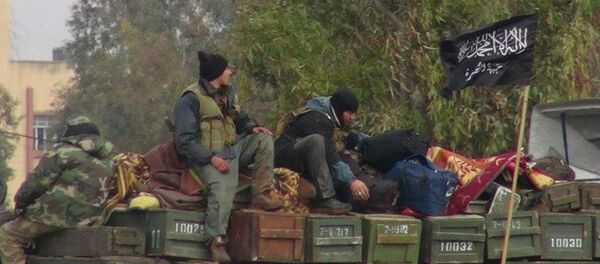The UN's Syria peace envoy Staffan de Mistura, who has recently been directed to re-launch the failed Syrian peace process, says that Moscow could play a key part in helping find some solutions to the brutal conflict that has resulted in the deaths of more than 210,000 people and led to a devastating humanitarian crisis since fighting began in 2011.
Staffan de Mistura: Moscow's influence on Damascus should be used http://t.co/OpMDVdy2aJ
— Syria News (@SyriaTNews) April 13, 2015
"Russia has influence on Damascus, and it's very important that they get involved," he told UK newspaper, The Independent.
"The two countries' relationship goes back to the time when Bashar al-Assad's father was in power. Therefore the Russians do have a knowledge of the system and the way they [Syrians] think."
The bloody fighting has seen Bashar al-Assad's government forces take on a combination of rebel groups and Islamic jihadists for control of parts of the country.
Meanwhile, the conflict has also been cited as a major reason leading to the proliferation of Islamic extremist groups in the region, such as ISIL, who have since spread across the Middle East and into Africa.
The Road to Peace: Supporting Assad or Arming 'Moderate' Rebels?
Mr de Mistura's comments seemingly go against the recent rhetoric of western nations, who have had disagreements with Russia over ways to handle the Syrian crisis.
UN envoy to Syria tells world to listen to Russia to end civil war: The UN special peace envoy to Syria has ur… http://t.co/l6vs208vjB
— Updates, Get It Al (@GetItAl) April 13, 2015
Russia has offered support for Bashar al-Assad's Syrian government as part of a plan to show a united front against Islamic extremism in the region, rather than splintering support for various different groups.
However this approach contrasts with the methods employed by western nations, and in particular the US, who have offered military support and training to various groups of 'moderate' Syrian rebels, who they hope can defeat other groups of Islamic extremists and then topple the Assad regime.
The US and other western nations have refused to work with or negotiate with Bashar al-Assad, accusing his government forces of using chemical weapons against Syrian civilians as part of efforts to defeat rebel groups — claims that have been denied by Damascus.
However some analysts believe the US policy for Syria is in tatters, following the disbandment of the Hazm movement earlier this month, who believed to have been Washington's favored and best-known rebel group.
Other critics believe that arming these so-called moderate rebel groups rather than a legitimate government is a dangerous exercise, arguing that many of these 'moderates' may in fact be Islamic extremists, and the military equipment and support supplied by the US may end up in the hands of extreme jihadist groups.
However, Mr de Mistura, in his efforts to find a peace solution in Syria, believes "anything" with the potential to break the stalemate should be tried, and described Russian-brokered talks on Syria to be a "very good initiative."

![Syrian President Bashar Al-Assad and Russian President Vladimir Putin [left to right] meet each other in the Kremlin. Syrian President Bashar Al-Assad and Russian President Vladimir Putin [left to right] meet each other in the Kremlin. - Sputnik International](https://cdn1.img.sputnikglobe.com/img/102083/44/1020834442_0:190:2948:1857_600x0_80_0_0_ee3d5d57b78d5414f4067d82f2621b42.jpg)


